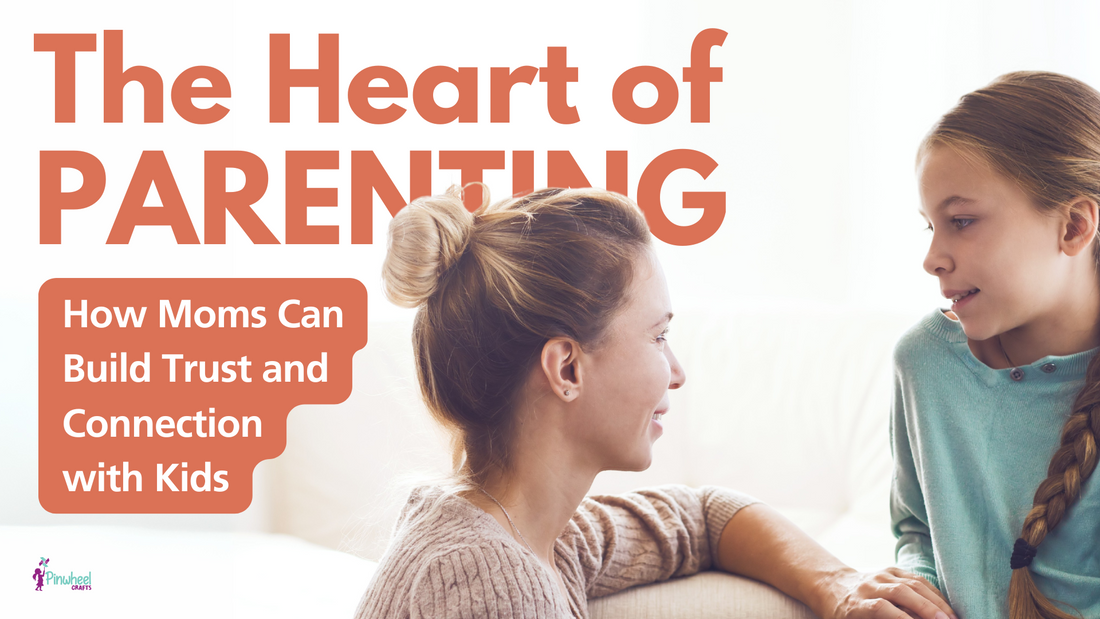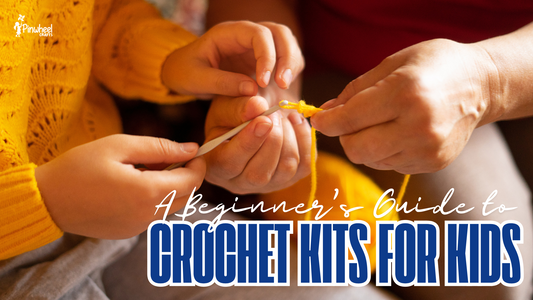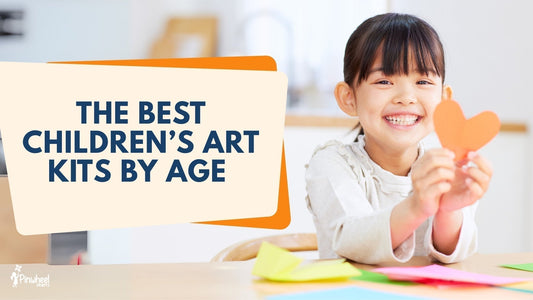
The Heart of Parenting: How Moms Can Build Trust and Connection with Kids
Share
Trust is the foundation of every strong parent-child relationship. From the moment our children are born, we become their first source of comfort, security, and guidance. But as they grow, their needs change, and the way we communicate with them must evolve, too.
For moms, building a deep and lasting bond with our kids means more than just being present - it’s about fostering open, judgment-free communication, showing unwavering support, and making sure they know, without a doubt, that they can always come to us.
Between ages 5 and 12, children go through tremendous emotional and cognitive growth. A kindergartener seeks reassurance in the small things, while a preteen craves independence but still longs for parental connection. By understanding what they need at each stage, moms can strengthen the trust that will carry them through the teen years and beyond.
So, how can we create an environment where our children feel heard, valued, and truly understood? Let’s explore how to build strong, trusting relationships with kids from early childhood to the brink of adolescence.

Ages 5-7: Building a Safe and Loving Foundation
At this stage, children are naturally curious, imaginative, and eager to share their thoughts with their parents. They need to feel safe in their emotions and secure in the knowledge that their voice matters.
Use Encouraging Words That Build Confidence
Young children absorb words like sponges. What we say to them can shape their self-esteem and the way they view the world. Simple affirmations can work wonders in making them feel loved and capable:
- “I love hearing your ideas.”
- “I believe in you.”
- “It’s okay to make mistakes. I’ll help you figure it out.”
- “You are so kind, and that kindness makes a big difference.”
By reinforcing positive messages, we give them the confidence to express themselves freely.
The Power of Active Listening
When your five-year-old tells you a long, winding story about their day or an imaginary adventure, it’s easy to nod absentmindedly while multitasking. But active listening - truly tuning in - tells your child that their thoughts and feelings matter.
- Get down to their level and make eye contact.
- React to their stories with genuine curiosity.
- Ask follow-up questions, like “What happened next?” or “How did that make you feel?”
This helps children feel important and teaches them that they can always turn to you when something is on their mind.
Create Comforting Rituals of Connection
Small, predictable routines help children feel safe and connected. These moments don’t have to be grand gestures - they can be as simple as:
- A bedtime chat about their favorite part of the day
- A morning hug and a positive message to start their day
- A special weekly “mom and me” outing, even if it’s just a walk around the neighborhood
These rituals provide consistency and reinforce that you are always there for them.

Ages 8-10: Encouraging Open Communication
By this age, children are becoming more independent and forming their own opinions. They are starting to understand more complex emotions, but they may not always know how to express them. Our role as parents shifts from simple reassurance to guiding them in navigating their feelings.
Ask Thoughtful, Open-Ended Questions
Instead of the usual “Did you have a good day?” (which often leads to a one-word answer), try:
- “What was something that made you laugh today?”
- “What’s the most interesting thing you learned this week?”
- “If you could change one thing about school, what would it be?”
These kinds of questions invite deeper conversations and show your child that you truly care about their thoughts.
Respect Their Feelings - Even When They Seem Small
It can be tempting to dismiss their worries with a quick “It’s not a big deal,” but for them, it is a big deal. Instead, validate their emotions with empathy:
- “That sounds frustrating. I’d feel that way too.”
- “I see that you’re upset. Let’s talk about it together.”
- “I’m always here to help if you need me.”
When kids feel heard and understood, they’re more likely to share their emotions openly, even as they grow older.
Encourage Problem-Solving Instead of Immediate Fixing
It’s natural to want to step in and solve our children’s problems, but empowering them to think through solutions builds confidence. Instead of giving them the answer right away, ask:
- “What do you think we should do?”
- “How would you like to handle this situation?”
This teaches them that their opinions and problem-solving abilities matter, fostering independence and self-trust.
Ages 11-12: Strengthening Trust as They Gain Independence
As kids approach their preteen years, they start craving more autonomy, but they still need our support. They may not always say they need us, but they still want reassurance and understanding.
Create a Judgment-Free Zone
Preteens may hesitate to open up if they fear criticism or punishment. Make it clear that they can always talk to you, no matter what.
- “You can always come to me, even if you’re worried about what I’ll say.”
- “I may not always have the answer, but I will always listen.”
- “I trust you to make good choices, and I’m here if you need help.”
This builds a foundation of openness, so they feel safe coming to you with their struggles.
Give Them a Voice in Family Decisions
Letting preteens have a say in household decisions - such as planning a family activity or choosing a new rule - helps them feel valued and trusted. It also teaches them that their opinions matter, reinforcing mutual respect.
Spend Time Together Without an Agenda
Not all bonding moments require deep conversations. Sometimes, preteens just want to hang out with you in a casual way - watching a show, cooking together, or even just sitting in the same room. These moments of quiet companionship show them that your presence is constant and comforting.
The Power of Connection: A Lasting Impact
Trust and connection are built over time through small, everyday moments of love and understanding. Whether your child is five or twelve, the most important thing you can do is show them that they are valued, respected, and safe to share their thoughts and feelings with you.
By nurturing open communication, choosing words that inspire confidence, and respecting their emotions, you create a foundation of trust that will carry them through their teenage years and beyond.
At the heart of it all, parenting isn’t about having all the answers - it’s about being a source of comfort, guidance, and unwavering love. And when children know, without a doubt, that their mom is always there for them, they grow into confident, emotionally strong individuals who trust not only in you but in themselves.




